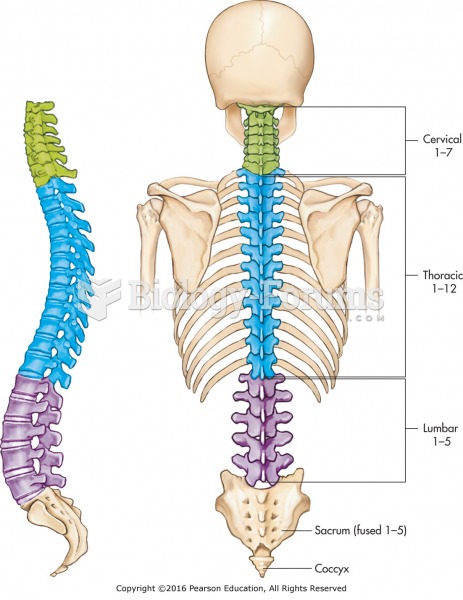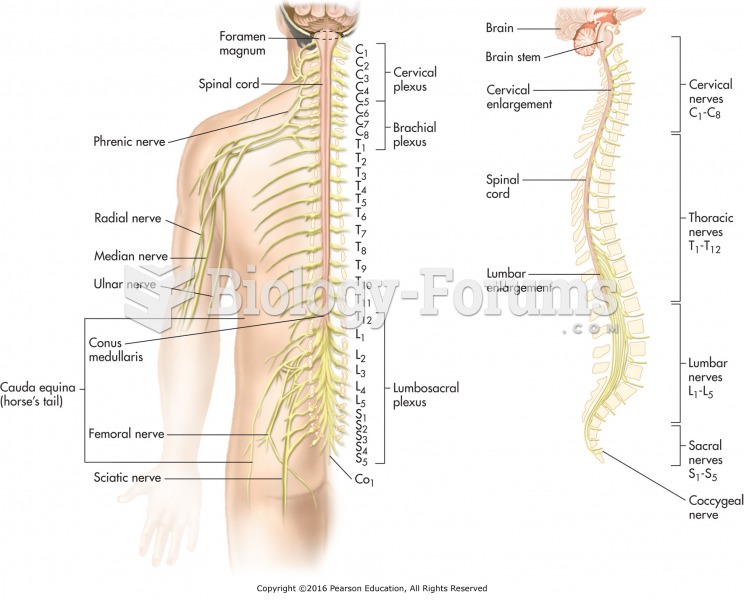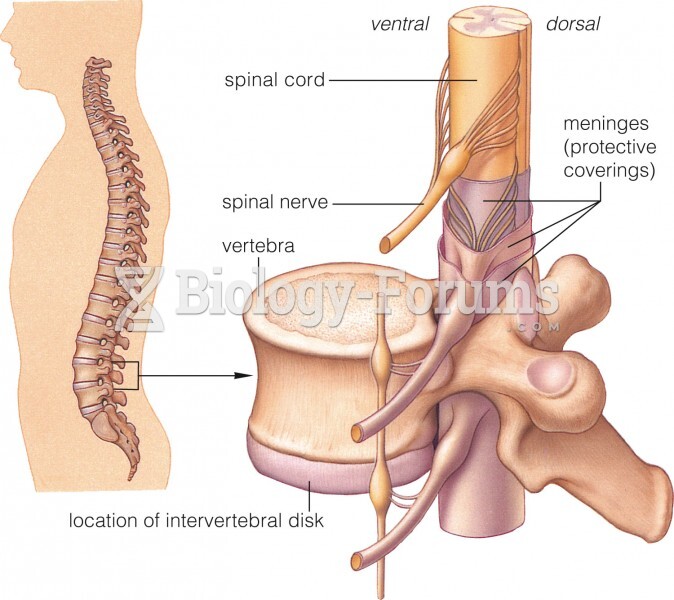|
|
|
The term pharmacology is derived from the Greek words pharmakon("claim, medicine, poison, or remedy") and logos ("study").
HIV testing reach is still limited. An estimated 40% of people with HIV (more than 14 million) remain undiagnosed and do not know their infection status.
The first oral chemotherapy drug for colon cancer was approved by FDA in 2001.
Hip fractures are the most serious consequences of osteoporosis. The incidence of hip fractures increases with each decade among patients in their 60s to patients in their 90s for both women and men of all populations. Men and women older than 80 years of age show the highest incidence of hip fractures.
Immunoglobulin injections may give short-term protection against, or reduce severity of certain diseases. They help people who have an inherited problem making their own antibodies, or those who are having certain types of cancer treatments.
 The functional structure of the peripheral nervous system. (A) Afferent or sensory neurons carry sen
The functional structure of the peripheral nervous system. (A) Afferent or sensory neurons carry sen
 Renal calculi (stones) can form in several areas within the urinary tract. When they form in the kid
Renal calculi (stones) can form in several areas within the urinary tract. When they form in the kid





